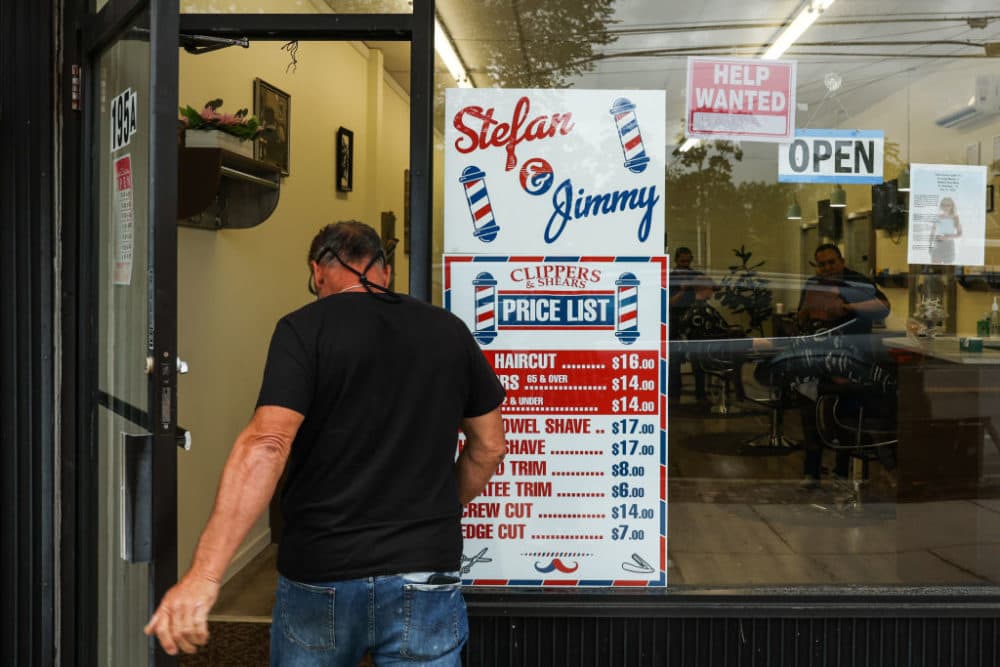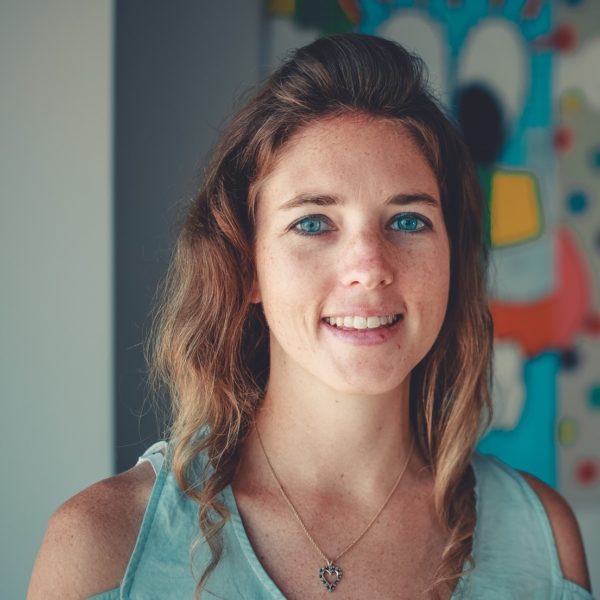Advertisement
Who benefits, who loses from the occupational licensing system?
Resume
Sign up for the On Point newsletter here.
Since the 1950s, the number of occupations requiring a state license has ballooned.
And most states don't recognize out-of-state licenses.
"It's a question of looking at the evidence and saying, do we really need to create new barriers to work? And often the answer is no," Lisa Knepper, co-director of the Institute for Justice's strategic research program, says.
Today, On Point: Who benefits, and who loses from America’s burgeoning state licensing system.
Guests
Morris Kleiner, professor of public affairs at the University of Minnesota and currently a visiting professor at The Hoover Institution at Stanford University. Author of several books on occupational licensing, including Grease or Grit? International Case Studies of Occupational Licensing and Its Effects on Efficiency and Quality.
Rob McColley, Republican Ohio state Senator. Majority floor leader of the Ohio Senate. Prime sponsor of a new law in Ohio that universalizes occupational licensing. The law will take effect on April 3rd.
Also Featured
Tedy Okech, of Boise, Idaho. She's braided hair her entire life. She was told she needed a cosmetology license to open a salon in Idaho – meaning years of schooling, training and thousands of dollars.
Greg Sizemore, vice president of health, safety, environment and workforce development at the Associated Builders and Contractors.
Transcript: Hair braider Tedy Okech on her fight to open her own salon
MEGHNA CHAKRABARTI: This year, at least three states put their state-based occupational licensing requirements on the chopping block.
Nevada, Ohio and New Hampshire are all moving toward universal licensing recognition.
Meaning if you've got an occupational license in something like court reporting, landscape architecture, cosmetology or cutting hair, and you're in good standing in your home state, those states want to welcome you to move to them and you won't have to get recertified.
Well, over in Boise, Idaho, Tedy Okech says it's about time, especially when it comes to careers in hair care, something she knows a thing or two about.
TEDY OKECH: For as long as I could remember, I grew up around hair, people braiding hair, straightening hair, coloring hair, doing whatever with hair. Hair has always just been a part of who we are.
Hair has always just been a part of who we are.
CHAKRABARTI: Tedy is a small business owner now. She was ten years old when she and her family, refugees from Sudan, first moved to Boise in 2005.
OKECH: My mom used to pull my hair way too tight, and it would hurt for days. And I was like, I can't do this anymore. I want to figure out how to do my own hair.
And so I started practicing on myself and I became so good at doing it on myself that I guess a lot of other people started recognizing it and wanted me to do their hair.
I became so good at doing it on myself that I guess a lot of other people started recognizing it and wanted me to do their hair.
Our family, when we moved here, we didn't speak any English whatsoever. So after we lived in Idaho for a few years, down the road, we started to realize like, Wow, even though we would like to get our hair done, it is very hard to find someone here who knows what to do with Black girls' hair.
So in 2008 was when I started getting pretty decent with braiding hair. And so I would put my hair in box braids and then I would walk around and then sometimes will be at Wal-Mart or something.
And another Black person would see my hair and they'd be like, Oh, wow, I like your hair. Who braided it for you? I just thought they were admiring my hair. So I would just say, Yeah, I did it. No way, would you be willing to do my hair?
And I remember it was a really weird question because I was like, I don't even know the stranger. Why did you want me to do your hair? But really, she was just seeking help. Like, Hey, I've been in Idaho this long. I can't find anybody to do my hair. I need help.
And this lady comes over to do her hair. And me and my sister did this lady's hair, like we braided her hair. It looks amazing and she paid us. And when she paid us, like it was so shocking.
We didn't even know how much to charge her anything. I ... think that was the first client we probably charged, like way lower than we should have.
Fast forward to five years later. When it got to the point where I was like, Oh my goodness, like this business is getting a lot bigger than I'm anticipating. And so that is when my brain was like, What will it take for me to be able to register my business, you know?
What will it take for me to be able to register my business, you know?
And that's when I learned that there was no way for me to make my business legal, because in order for me to even register my hair business, I had to go to cosmetology school and have [a] cosmetology license. And so that's where things kind of took a turn of like, Oh, what do we do now?
One night I was just laying there, and I was stressing out. Because I was like, Oh my God. Like, I don't know, what are we going to do? We have to find a way to make this business legal.
But I can't. There's no way. I don't have time to be adding cosmetology school to my budget or my schedule right now. I'm a mom. I'm working full time. I'm braiding part time. I don't have an hour out of the day to be going back to school.
I'm a mom. I'm working full time. I'm braiding part time. I don't have an hour out of the day to be going back to school.
And so when I stumbled across an article and the article says that people in different states were fighting against occupational licenses. We found a group of ten women that were willing to fight for us. We found a group of supporters and everything.
So March of 2022 is when we filed the lawsuit. That was honestly the most uncomfortable time of our lives because we might lose the lawsuit. If we lose the lawsuit, then now you've got to shut down your business.
That was honestly the most uncomfortable time of our lives because we might lose the lawsuit.
But it went really quickly. We were really surprised because by the middle of April, we already heard back that the governor was going to sign a new law in place that would exclude braiding from the cosmetology license, meaning that we no longer had to go to school just to simply braid.
It's amazing that it worked out quickly for me. But the question is, is it going to be as amazing and easy for someone else? There's a way to make it easier option for people, and we don't. And I don't understand why.
It's amazing that it worked out quickly for me. But the question is, is it going to be as amazing and easy for someone else?
CHAKRABARTI: That was Tedy Okech of Boise, Idaho. Well, after Idaho's governor got rid of the license requirement for braiding hair, Tedy and her business partner, Charlotte, got their business registered. They work out of Charlotte's home, and their client list keeps growing.
Well, Tedy's story is actually very, very common in the United States. Because today, one in four American jobs requires an occupational license. That means you, or most likely someone you know. And not just in the legal or health care fields. Depending on the state, you could need a license to work as a florist, a private detective, a security guard, or a landscape architect.
Today, one in four American jobs requires an occupational license.
This program aired on February 28, 2023.

